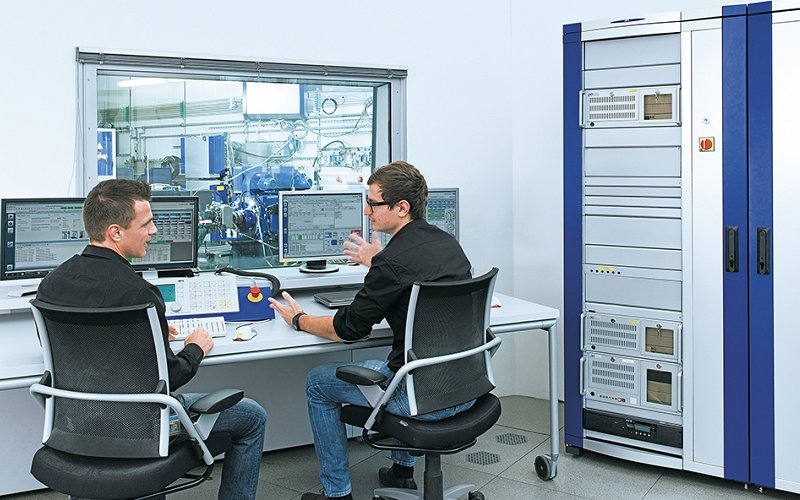HPC-Cloud-based reduction of vehicle emissions


AVL is the world's largest independent company in the development of powertrain systems for internal combustion engines and associated instrumentation and test systems. From diesel engines to electric drives, from alternative fuels to control software, from transmissions to batteries, AVL has been working in partnership with companies all over the world for more than 60 years. AVL tackles the development of highly creative, mature and application-specific solutions for its customers in order to meet their market challenges. The need for CO2 reduction, the increasing complexity of new powertrain systems, and a requirement to achieve the highest possible level of process efficiency are some of the key challenges facing the automotive industry now and for the foreseeable future. AVL provides its customers, many of which are SMEs, with a set of comprehensive simulation tools in a flexible and open environment enabling multi-disciplinary solutions as an integral part of the powertrain development process. AVL's powerful simulation platforms, based on its engineering expertise, focus on application-oriented solutions. Fully validated state-of-the-art physical models embedded in application specific simulations enable virtual prototyping at the component and system level for the most effective combination of simulation, design and testing.
The Challenge
The majority of projects in the area of vehicle optimization involve studies with large-scale variations in parameter and components on a limited palette of base vehicle models. These studies require high levels of CPU cycles on-demand. Not only SMEs, but even larger companies, struggle to provide sufficient computational resources necessary to accomplish optimization tasks in an acceptable time-frame. This case study addresses the use of on-demand, Cloud-based HPC resources to tackle the important requirement for the reduction of CO[SUB]2[/SUB] emissions in the design of vehicles.
The Solution
The outcome of this case study has been to demonstrate the viability of on-demand computing resources in the design of powertrains with specific emphasis on the reduction of CO[SUB]2[/SUB] emissions. This solution involves the running of AVLs simulation codes on a Cloud-based HPC system where computer resources are made available on-demand.
The Benefits
The most clear cost benefit of using HPC-cloud resources is the possibility to lease a powerful computing cluster for single projects instead of acquiring and maintaining computational resources which would be underutilized for most of the time, and probably even not sufficient when really needed. Using a Cloud-based solution, taking into account all additional cloud overheads, short-term projects running millions of simulations on 400 cloud CPU cores for a period of a couple of weeks, several times a year, would run with costs reduced by up to 90% when compared to the total cost of ownership of a dedicated in-house system. This is the cost range where it becomes attractive for SMEs to participate in projects which require high CPU power for only a short time.
Participating Organisations
End-user and Code Owner: AVL
HPC Centre and HPC Expert: University of Stuttgart
The outcome of this case study has been to demonstrate the viability of on-demand computing resources in the design of powerchains with specific emphasis on the reduction of CO2 emissions.
